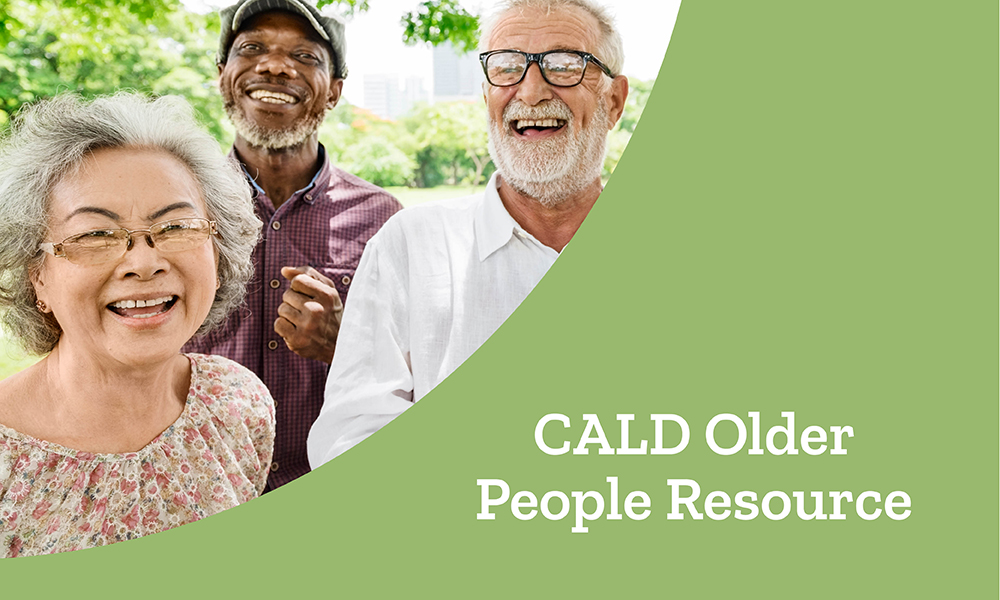CALD Older People Resource for Health Providers
Online ResourcePrerequisites
The following course is a prerequisite:
- Module 1 - Culture and Cultural Competency | Mandatory
To access the above course you need to check your eligibility and how to register/enrol.
About this resource
This HTML resource provides a general guide and essential culture-specific knowledge and cultural approaches for health providers working with CALD older people from Asian, Middle Eastern and African backgrounds.
It contains research material and guidelines. It also present case scenarios in multi-media and text formats to enhance the learning process.
This resource is for health providers working with CALD older people and their families in primary, community, mental health, secondary care, home-based support services (HBSS), and residential aged care (RAC) settings.
Topics
-
Information about CALD older adult populations
-
General cultural perspectives including working with families, decision-making, religious and cultural practices and the implication for practice
-
Cultural perspectives, cultural approaches, tools and case scenarios in the following areas/services:
-
Assessment, Treatment and Rehabilitation
-
Dementia
-
Stroke
-
Mental Health
-
Needs Assessment and Coordination (NASC)
-
Residential Aged Care (RAC)
-
Elder Abuse and Neglect
-
Advance Care Plan and Advance Directive
-
End-of-life Care
-
Resources
-
It is expected that viewers of this resource will:
-
have completed "Module 1 - Culture and Cultural Competency" course
-
be familiar with Ministry of Health and DHB protocols on interventions in suspected cases of Elder Abuse and Neglect
Additionally it is highly recommended that the viewers of this resource will have completed:
- Module 2 - Working with Migrants Patients
- Module 3 - Working with Refugee Patients
- Module 4 - Working with Interpreters
Additional valuable information on working in a culturally competent way with migrants, refugees and interpreters can be found in the following courses and supplementary resources:
-
Supplementary resources:
-
Working with Asian Mental Health Clients
-
To access the above courses you need to check your eligibility and how to register/enrol.
Researched and written by Dr Annette Mortensen and Sue Lim.
Produced by eCALD® Services, Waitemata District Health Board (2014).
Reviewed and republished: March 2017.
© Waitemata District Health Board (2017).
